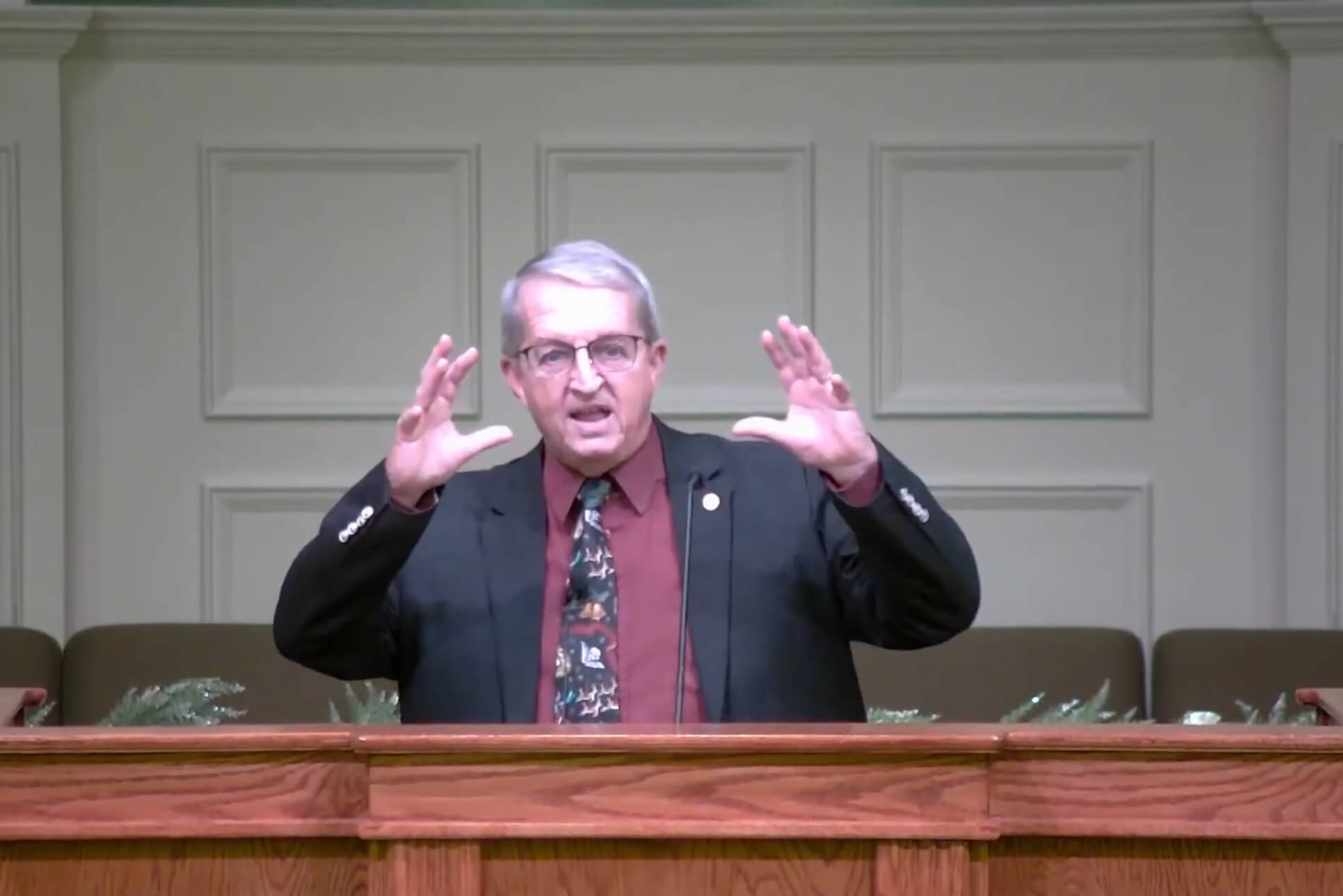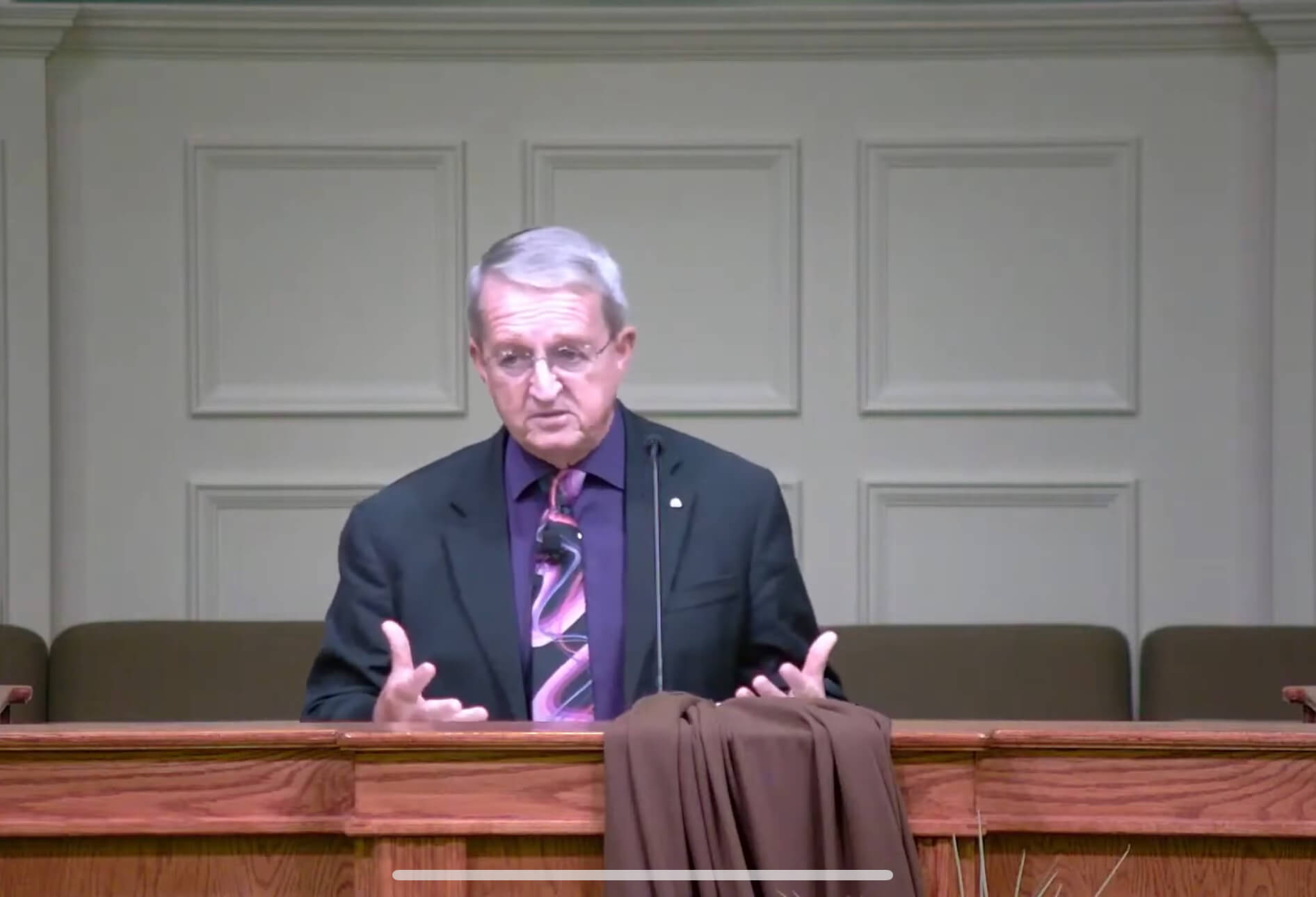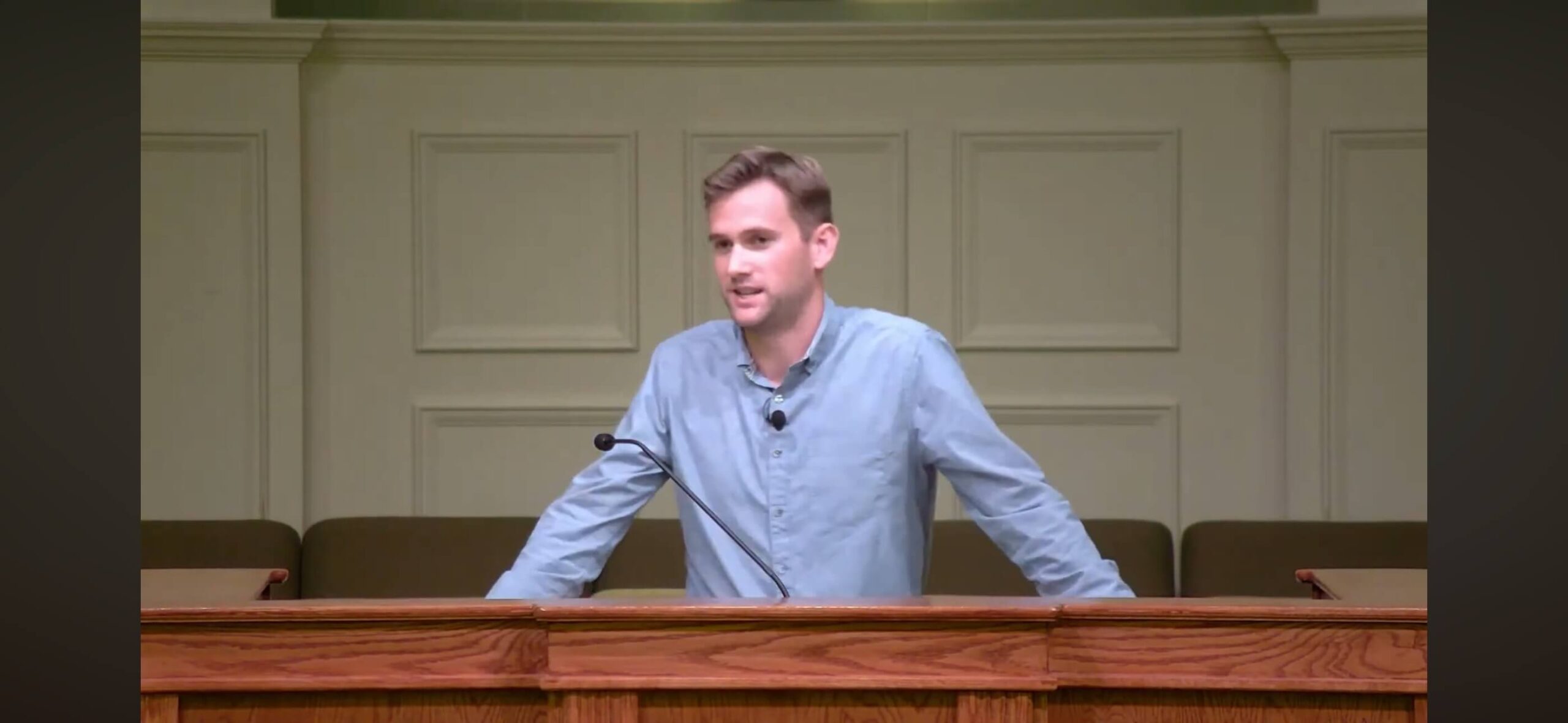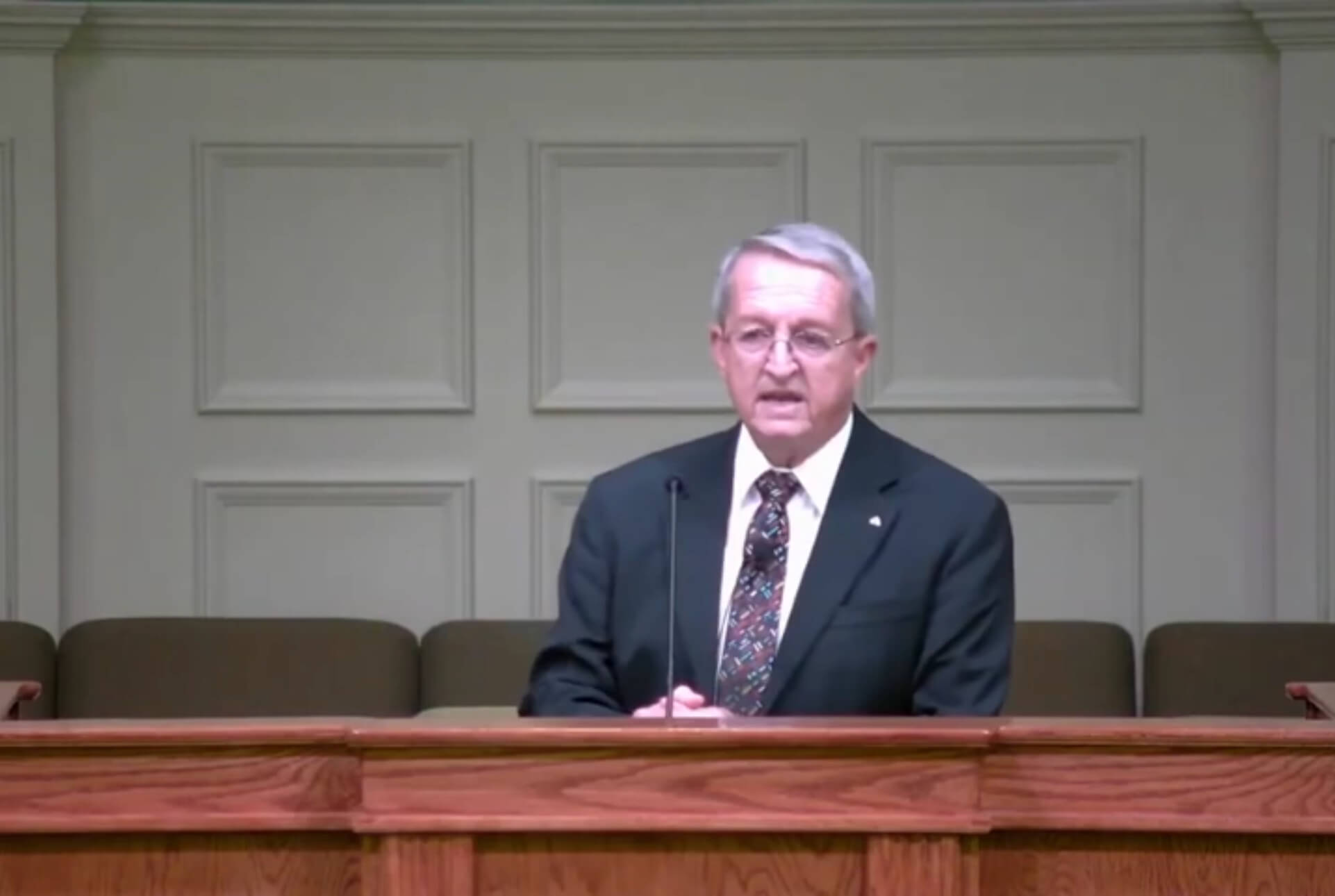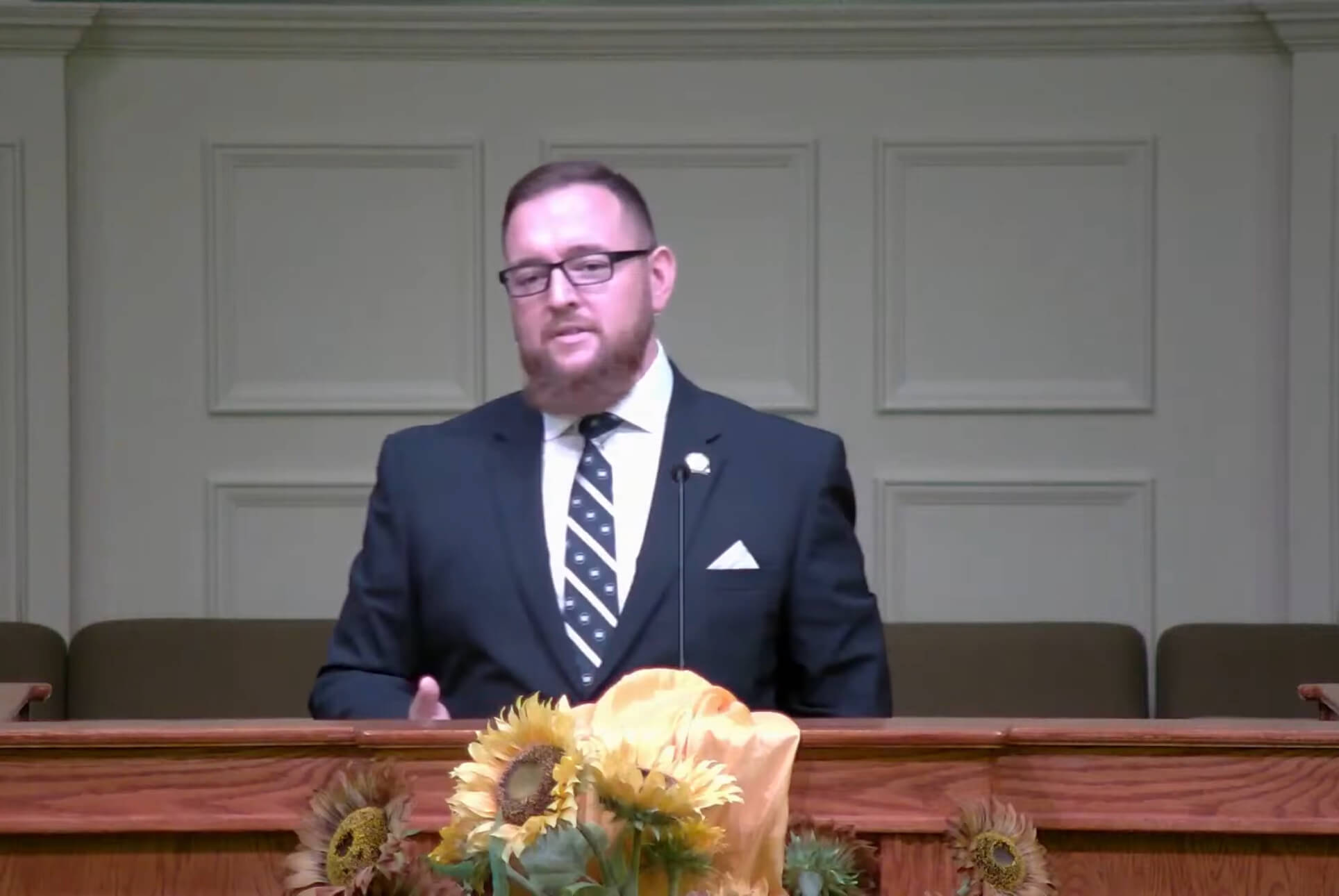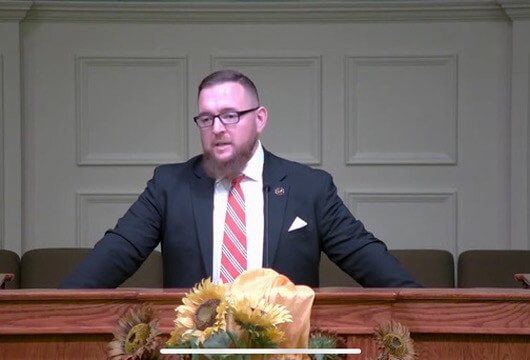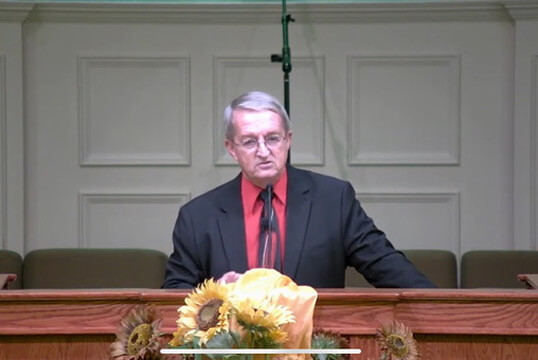Video
“Behold!”
Pastor Richard C. Piatt
12/01/2024
Audio
Transcript
Isn’t it great to be singing Christmas hymns and carols again? But I caught myself, this message today is going to be very reminiscent and talking about memories. But as we were singing, I think it was the first one, I sang as if we were in one of our old cantatas. You know, and then comes along COVID and really messed up the cantata, Christmas cantata world. We’re having a night of Christmas music, but not really a cantata because during that time, choirs and the way the spread of the virus and how it went and the bad publicity, all that got.
So, but I do remember the Christmas cantatas and the times we would sing and we had some really good ones here over the years. And I caught myself singing that one and thinking, you know, I don’t think that’s probably what is in the hymnal. And to let that go. And then I was just reminded that one of my favorites, we’re going to sing between the message and the celebrating the Lord’s table. And I just love that particular hymn and look forward to it and sometimes throw it in during the year just so that we can hear it about the Savior and giving himself for sinful mankind. But then I’m also reminded that at Christmastime we sing carols that don’t always have.
Well, let me put it in another. I’ll approach it another way. Be a little bit more gracious. That don’t always have a complete and fully right biblical doctrine. Because on stanza two, we had those kings at that manger. And as you know, being your pastor for 30 years, that kind of is something that gets caught in my crawl every time. However, it is offset with that passage in that hymn about fall on your knees. I just, I look forward to that. I don’t know if I would miss it, you know, Christmas if I didn’t, you know, fall on your knees as they make mention of that. And I do think that those kings did get on their knees at the house, not at the manger, but at the house. And I think they did get on their knees.
So that little bit of a glitch, you know, and I’m not going to come to all of your houses and see if you’ve taken those kings and put them in another room. And if maybe you’ve even dethroned them and maybe they weren’t even kings, they were Magi. But, you know, who you know, just because we read our Bible, you know, we can mess up some good Christmas songs. But we do appreciate some of the Christmas songs and the special music that was there. We have a wonderful gift given to all of mankind, except for those that may have an unfortunate God and his providence birth or a glitch in their DNA. But for the majority of mankind, we have a wonderful gift called the gift of memory. But also because of the reality of sin and the second law of thermodynamics, which means everything goes to a greater state of disorder, that oftentimes as we age, our memory goes just a little bit, and then it seems to pick up as we lose memory. And it happens in different stages.
You know, it may be that you leave the bedroom, go into the kitchen and you forget what you went into the kitchen for and what you were supposed to get. And then you got to go back in the bedroom and start it all over again. What was I doing and what was I thinking? And and then but memory is a wonderful gift. And as we get older, we do leave some of that because of the reality of sin in this world. There’s a terrible disease. that has happened in my family and probably in yours of a terrible thing called Alzheimer’s and some people call it old timers. It’s too serious in a sense to even make light of that way, but it does happen generally with people as they age for those that have some age on them. But we tend to lose some of those memories.
But then most of the time, what I have noticed is that they have memories. It’s just they can’t recall some that they want. You still have it in there somewhere because we are fearfully and wonderfully made. And the importance of memory and over the last 30 years of being the pastor here and as what we’ve been reflecting a lot upon And this is a particular message that is more about memory in a sense and reflection on how I’ve constructed it. That I’ve been spending a lot of time in memory lane of the last 30 years. And maybe you have a little bit if you’ve thought of that, but I’m spending a lot of time. Things like that as the senior pastor, this will be my last communion. I’ll be here and I’ll be helping and serving and so it isn’t like my last communion, but my last one as a senior pastor.
Oh, there will be that one on the Sunday night before Christmas, but that’s an evening service and Pastor Ryan will be in charge of that one. And we haven’t really planned out a lot of what that’s going to be. The elders will be taking care of that and I’ll be going and I’m still being a staff elder and that sort of thing. But those are the kind of memories, you know, that you start looking at. And you start thinking, okay, what’s this sermon going to say? And how am I going to look at this? And all of this. And memory has a unique way of being precious, but also having a sting to it. And so as I have thought about 30 years of being a senior pastor of Fellowship Baptist Church and of administering one of two ordinances that God has given to his people in the church to be perpetuated till the coming of the Lord, that first of all, communion and the celebrating of the Lord’s table is a tremendous Privilege. It is a tremendous honor.
Now, that’s for all of us to even participate in this. To participate in the celebration of the Lord’s table. That we are not worthy, yet we are told, let a man examine himself. And then so we did that bread to check up on your worthiness. And what that means is as far as looking at your heart, soul, confession of sin and the like, of which we always give opportunities to do. But we’re not we don’t deserve the right. To take eat, this is my body and take drink, this is the cup of the new covenant in my blood. That is an act of grace. It is an act of honor and privilege. that we can even come to the Lord’s table. That’s one reason why that we do fence it and the fact that This is not for everyone. And now, you know, if an unsafe person takes communion, it just doesn’t do anything. But if you have a person, say, for example, under church discipline or a person that’s maintains a very unforgiving spirit or the like. Well, the words are true. And the words of the Apostle Paul for this cause, many are sick and weak and some have even died. So God has a right to kill you. if you come to the table in a manner that is not worthy, worthy as far as remembering who and what we are.
So it’s one of those circumstances, kind of like a marriage. It is a great time to rejoice. It is also a time to remember how serious this really is. This is a time that we celebrate the shedding of his body and the shedding of his blood and the brokenness of his body and what he goes through and that’s what we’re going to do today. But what I want to do is um and reflecting over that and 30 years of doing that now it does again doesn’t mean I’m still not going to participate as a staff elder and all this kind of thing but as being and and being here for 30 years and seeing the history and the contemplation of it all You know, I’m putting together what my last my last message as that senior pastor is going to be on the Sunday before. I think it’s the December 22nd. And I am going to do I’ve already started working on it, which has been part of what this is to that. A Christmas panorama of 30 years of Christmas messages.
Now, that doesn’t mean it’s going to be 30 points. Maybe 15 or 20. But it’s going to have a panorama of what was it like in 30 years of some of the messages that I have preached and that some of you like so many of you, the majority of you were haven’t been here for that time. So some of those messages may surprise you. I remember one time and I had went back and I looked at it and I even saw the songs that we sang and everything. But I one time preached a Christmas message on the circumcision of Jesus. And Larry Madrid, the the worship leader, just looked at me and he said, you wouldn’t dare. And I did. And he couldn’t believe it. And so we’re going to, you know, a lot the precious memories. You realize that it’s important for us to recognize that is in the scripture. And what the scripture records, how and the circumstances of that and why that is so important. Because God. Who is spirit became flesh and dwelt among us. And when we come to the Christmas time of celebration, we need to be reminded we need to pay attention.
So as we’re going to come to the table this morning and each time that we Celebrate the bread, and we celebrate the cup. If you remember, it says, it goes in that passage, 1 Corinthians, that I, for 30 years, have read, that in the night in which he was betrayed, he took bread, and when he had given thanks, he took it and broke it, and he said, take, eat, this is my body, which is broken for you. Then do you remember the next phrase? Do this, what? In remembrance of me. So that’s what I want us to do, is to remember Christ. If I, in all of the reflections of 30 years of communion in the same local assembly, that if I would have one thing that I would want you to be able to say in those 30 years, there’s a couple of you who’ve been here the whole time, and again, the majority not, But for the years that you have been here to say, this is a time that we remembered Jesus Christ. Because that’s really what it’s about.
It’s not about how good our communion bread is next to all the other churches. Or for that time during communion when we had to go to that abominable Styrofoam bread that was all sealed. Oh, how terrible. We were all glad that was over, weren’t we? But it isn’t about how good our communion bread is or about whether you use real wine or you use grape juice. That’s not the point. It’s about Christ. And it’s a time to behold Jesus Christ. Do this, and that’s what we’re gonna do here in a few moments, in remembrance of me. Well, and reflecting over all of these things and being the first Sunday, this is that first Sunday of the month. But it’s also in a year that everything is accelerated because Thanksgiving was so late and how we’re going to do that. I wanted to have a bit of a special message and to reflect upon this.
But then next week, I’m going to be back in that Second Timothy and next week’s message is I’m going to preach a gift to and the and the message is going to be a gift to Pastor Ryan. Now, you’re going to have to come to find out what that’s all about. But it’ll be my gift to Pastor Ryan next Wednesday night. But when we come to this Sunday, the celebration of the Lord’s table and to remember him, It is amazing that when you come to the Christmas account. And then nativity, there are several things that are. Several words that are very repetitious, and we’ve done a couple of them in the songs that we sang this morning. There’s also other things that are they’re all part of the narrative and we all know about them, but we never think about why. And so tonight, I’m going to look at the whole idea of angels. You know, we have, you know, a lot of Christmas hymns and carols about angels. Well, why and why were angels so involved and what are angels and where are angels?
So tonight is going to be a whole message on angelology, but with the emphasis of why it’s all that important at the nativity. But one of the words that becomes so important during the Nativity scene, and it goes along with the preparation of getting us ready to come to the Lord’s table. And it is found, and there’s actually several of those words, and I’m going to have you now take your copy of God’s Word and turn with me to the Gospel according to Luke. The physician, Luke, that doctor who I think the physician who was a bit caught up in this whole thing of. Just how does. God become virgin born and just what about that?
Now, I have a degree in biology studying, having been a student and studying to be a veterinarian. that captivates me, too. And when I when I come to this, I find it amazing. And we have to come to the gospel of Luke. And I always every Christmas come to this passage and just spend some time. And I found out that one of those panoramic comments that I made at one point in my 30 years in the Christmas preaching. The day God, the eternal omnipresent God, became a single cell. That does kind of explain that. It’s a bit of a brain tease, but. We have it in this passage, look at Luke, the Gospel of Luke, Chapter one. And I am going and this kind of comes over a little bit with angels appearing, but look at verse twenty nine, Luke one, twenty nine. But when she saw him, she was troubled at his saying. and considered what manner of grieving this was. Then the angel said to her, Do not be afraid, Mary, for you have found favor with God. And here comes the word and behold. It’s that word to behold.
Now, there’s derivations of that, but this one and through this passage, It’s all one particular word, but the last one is going to be a bit of a variation on it. But if you look at verse 31 and behold. You will conceive in your womb and bring forth a son. And shall call his name Jesus. He will be great and he shall be called the son of the highest and the Lord God will give him the throne of his father David, and he will reign over the house of Jacob forever, and of his kingdom there will be no end.
So it’s kind of that announcement. Mary, she was a very good young Jewish lady and she was very special. And God had in his sovereignty chosen her to be the bearer of his son and that will read the text that the Holy Spirit would overshadow her and that holy thing. And again, we can’t say this with absolute authority, but that holy thing that is that single cell that will be implanted in your womb. Will be the son of God, the God of the highest. and what truth. But what was the word that the angel used to announce the whole thing, to kick it off? Behold.
Now the word to behold is an interesting word. It means to take a look at. But it really means more than that. It means to take a look at and be willing to be captivated by it, to talk about it. It has this idea of to behold and to meditate. To to gaze upon to fully, to the best that you can. really take a look at it. I remember the first time I put on glasses was I was in seminary in northern Indiana and I went to the eye doctor and they said yeah and my eyes went bad really quick because I took Greek and Hebrew at the same time and I almost went cross-eyed because you know they read differently. Hebrew reads I’ll say backwards only because, you know, Greek and English go the one way. But I guess if you’re a Hebrew, they would say all of us are backwards. But anyway, they go in opposite directions.
And so I was having a problem with that. I was having a problem. You know, just my I saw something that was in another script. My eyes would mess up and I had to get glasses. Well, I remember putting on my glasses. the first time and going outside, I had not seen leaves, individual leaves on trees for probably years. It was just green, you know, kind of like how you color them in elementary school. And I went in, whoa, look at that. Well, that’s really what this word begins to encapsulate. It means to be captivated or when a guy finds that one girl that he just cannot look enough at and he just gazes upon her. And it’s even a couple of weeks before he recognizes the fact that she’s got freckles because she he’s just been caught up by the beauty of it all. But then as he studies and meditates and thinks about and contemplates it.
Oh, wow. And even the freckles are cute. Freckles are freckles, but they’re cute on her. And so all of that. That’s what this word behold. You are beholden. You are wowed. OK. And behold, think about this one. We may call this a wowie zowie moment. Take a look at this. You’re going to conceive. This is a big deal. But what’s interesting is, is that in the nativity arrangement here, there’s a lot of them. In fact, I was just amazed and even found one just real quick. Look on over to chapter one and verse 38. Then Mary said, then Mary said, Behold, take a look at this. The maidservant of the Lord. Let it be to me according to your word and recognition and what you have just said and all go ahead. Behold.
Well, it’s also seen then later on when she talks about in the Magnificat, verse 46, and my soul magnifies the Lord and my spirit rejoice in the God of my savior. He has regarded the lowliest state of his maidservant for behold, henceforth, all generations will call me blessed. And what are we doing today? She was a blessed young lady to be the womb that would bear the son of God. Take a look at this. Well, as we continue to go on, you find out, well, that wasn’t the only one. Because if you go on in chapter two, after the birth, and you get to verse eight of chapter two in the Gospel of Luke, and there in the same country, shepherds living out in the field, keeping watch over their flocks by night, and then we know the angels appear, and behold, An angel of the Lord stood before them and the glory of the Lord shone around them, and they were greatly afraid.
So the shepherds are out there doing their shepherding. And all of a sudden, behold. You see, it is as it were, Luke wanted to make sure we saw something. We saw the importance of this coming of the baby Jesus. He’s just behold, Mary got it, behold. And now the shepherds are getting, behold, the angels are declaring it, behold. It goes down in verse 10. Then the angel said to them again, do not be afraid. Guess what? Behold, I bring you good tidings of great joy, which will be to all people. For there is born to you this day in the city of David, a savior who is Christ the Lord. Well, there you have it. They he’s announced he’s coming and he wants us to see it. He wants us to meditate on. He wants us to see how precious of a moment this is. But that’s not the last one. You pop on over and later on after the shepherds visit Jesus and they go and I love verse 19. But Mary kept all these things and pondered them in her heart. And the shepherds returned, glorifying and praising God for all the things that they had heard and seen as it was told them.
Well, as being good Jews and that they would need to do and getting him circumcised and to take him to the temple and and so forth, and that’s offered up there in verse 24. Well, we go on up, verse 22. And when the days of her purification, according to the law of Moses, were completed and they brought him to Jerusalem to present him to the Lord, as it is written in the law, every male who opens the womb shall be called holy to the Lord and to offer a sacrifice according to that which is said in the law of the Lord, a pair of turtle doves or two young pigeons. They were very poor family. But they did this. And we would find out later this all was necessary because he was born under the law. He was a true human. He was Jewish and he was dedicated and he would fulfill the law.
He would live a sinless life that he would fulfill all righteousness. And therefore, we would give him our broken lawlessness and brokenness and sin. And he would give his his righteousness. And he fulfilled that in the act of obedience unto God the Father. Now, verse 25, we have the fact that she then, when they are there, and behold, and it’s like Luke is saying, and hey, and now you know what happened? Behold, take a look at this. There was a man in Jerusalem whose name was Simeon. And this man was just and devout, waiting for the consolation of Israel. And the Holy Spirit was upon him. And he had been and it had been revealed to him by the Holy Spirit that he would not see death before he had seen the Lord’s Christ, the Lord’s anointed, the fulfillment of Old Testament prophecy, the one who would come, the son of David, who would sit upon the throne. And so he came by the spirit into the temple that day. And when the parents brought in the child Jesus to whom for him, according to the custom of the law, he took him up in his arms and he blessed God. And he said, so now we’ve got Simeon’s prophecy of how great this is all going to be and the wonderfulness of it all. But unfortunately, there is one more behold. Now, keep in mind, this is written after the death, burial and resurrection of our Lord. Luke had written this.
We’re next going to go to the Gospel of John, and it was written very much later after this. But when this was written, all of this was done. So he knew what it was. But as he related this, it says, verse 33. And Joseph and his mother marveled at those things as they were beholding. And she’s pondering these things in her heart, which were spoken of him. Then Simeon blessed them and said to Mary, his mother. And this becomes important. After all of this and they’re beholding and she’s taking this and a lot of excitement and pondering and all of this, then we get it. He says this, behold, take a look at this. What I’m about to say is what you need to fully catch. Behold, this child is destined for the fall and rising of many in Israel and for a sign which will be spoken against. And if it goes on after the parenthetical thought that the thoughts of many hearts may be revealed, in context is in reference to Jesus relationship to the nation of Israel and how they would eventually reject him. But I want to behold him when he said he said this, the child is destined for these things. So mom, Mary needed to know that. But there’s this parenthetical thought. Behold.
Yes, a sword will pierce through your own soul. In prophecy of what’s going to happen. Of what is recorded in the Gospel of John, Chapter 19. As she beheld. Her son. Dying for the sin of the world. Dying, not for his own sin. Dying there, an innocent man. between two guilty men. She sees his brow dripping with blood. She sees his face disfigured more than any other man. Isaiah chapter 53 and other places. Beard plucked out. The absence of clothing. The beatings, the swelling, everything that was indescribable. And this prophecy fulfilled. Her soul would have been pierced. That’s my son. That’s also the son of God. Take there and turn there with me, if you would, just so that we can read that in context. The Gospel of John chapter 19. before he and she saw that in chapter 19 of the Gospel of John. And all of this is going on, I’ll begin reading at verse 19, because a lot of years have passed, there’s life, the miracles, and the healings, and everything else.
So then Pilate took Jesus and scourged him. And the soldiers twisted a crown of thorns and put it on his head. And they put it on him, a purple robe. Then they said, Hail, King of the Jews. And they struck him with their hands. And Pilate went out again and he said to them, What do you know? Here’s another word. Behold, I bring him out to you that you may know that I find no fault in him. Behold, the man, he’s innocent, even though he’s gone through everything at that point. And Jesus came out wearing the purple crown of thorns, the purple robe. And Pilate said to them. Behold. The man. This morning, we gather at the table. To remember. Take it, this is my body. which was broken, which was beaten, which was pierced, hands, feet, and side. And we are commanded even at his birth, take a look at this. This is the story of stories. This is something that should captivate us. And it comes to this one. Behold, take a look at this, marred more than any other man. By his stripes, we are healed. We can come to the table. At that point, to make that purchase, he couldn’t even walk. His feet were nailed to a cross.
Beloved, as Christians, we’ve got things to behold. that non-Christians have no concept over. They don’t know what the birth of Jesus is really about. Oh, they may try and play with it a little bit, but how many will really meditate and be captivated by the fact that God became flesh and dwelt among us? The passion that we have. In 1 John 1, You see, he recorded that. Behold, behold him at the cross. But in John chapter one, we have that beautiful prologue. In the beginning was the word and the word was with God and the word was God. He was in the beginning with God. All things were made by him and without him, nothing was made that was made. We jump way over to verse 14 and the word that was with God and was God became flesh and dwelt among us. That’s the incarnation, that’s the story of Christmas. And then what was the next phrase that John would say? And the word became flesh and dwelt among us, and we beheld. We looked at, now that was specifically stated by the disciples that were following him, and we beheld him. They didn’t hear the angel say, behold, but they beheld. They watched him. And we beheld his glory as the glory only begotten of the father, full of grace and truth.
Now, that probably included things like the transfiguration. Probably it’s the first application to that, I would think. The transfiguration is miracles. They beheld his miracles. They beheld his death, or at least knew of it. They beheld the darkness and the graves that were open, the veil torn, his resurrection, his ascension. They beheld all those things. But what’s interesting is as it goes on in this passage, this prologue, and look at verse 18. And this is what we need to remember this morning as we come to the table. No one has seen God at any time. Anyone who says they’ve seen God is a liar. No one has seen God at any time. The only begotten Son, that would be Jesus, who is in the bosom of the Father. Now I know what the picture is in my head when I say that, but what is the bosom of the Father and what does that, I have no idea, but it’s in the special place of communion, closeness, it’s really equality. But the son who is in the bosom of the father, he, that is Jesus Christ, has declared him. That is the Greek word where we get the word to exegete. He has exegeted God. You want to see God? You look to Jesus Christ.
And Jesus said in the night in which he was betrayed, he took bread. I’m sorry, Paul said that Jesus told him And the night I was betrayed, I took bread. And after giving thanks, he said, take eat. This is my body, which is broken for you. Remember me. Not as a baby. That was a big deal. But he was in the bosom of the father. And then he came to show us God. People will celebrate a baby Jesus. But they will not celebrate. The son of David, who will sit on a throne. And made a promise he’s coming again, in fact, they don’t even like the nation in which he was born in with the anti-Semitism that’s running rampant today is just one picture, slight picture of what people really think about Jesus Christ. about the people of Israel, the people of God. Ultimately, they don’t like the God that Jesus reveals. And we come here today. To participate in a meal because he has shown us that God. Do you know him? Do you know that God through his son, Jesus Christ, he died on the cross to shed his blood so that our sins could be washed away? Trust him. Call upon him today if you never have.
Let’s pray. Our father, may we. Today in communion, not only look to him, but may we look at him. And father, may we contemplate the greatness of our God as we contemplate in a real sense our Savior of a fallen race and what He did for us. We remember in Jesus’ name, amen.
